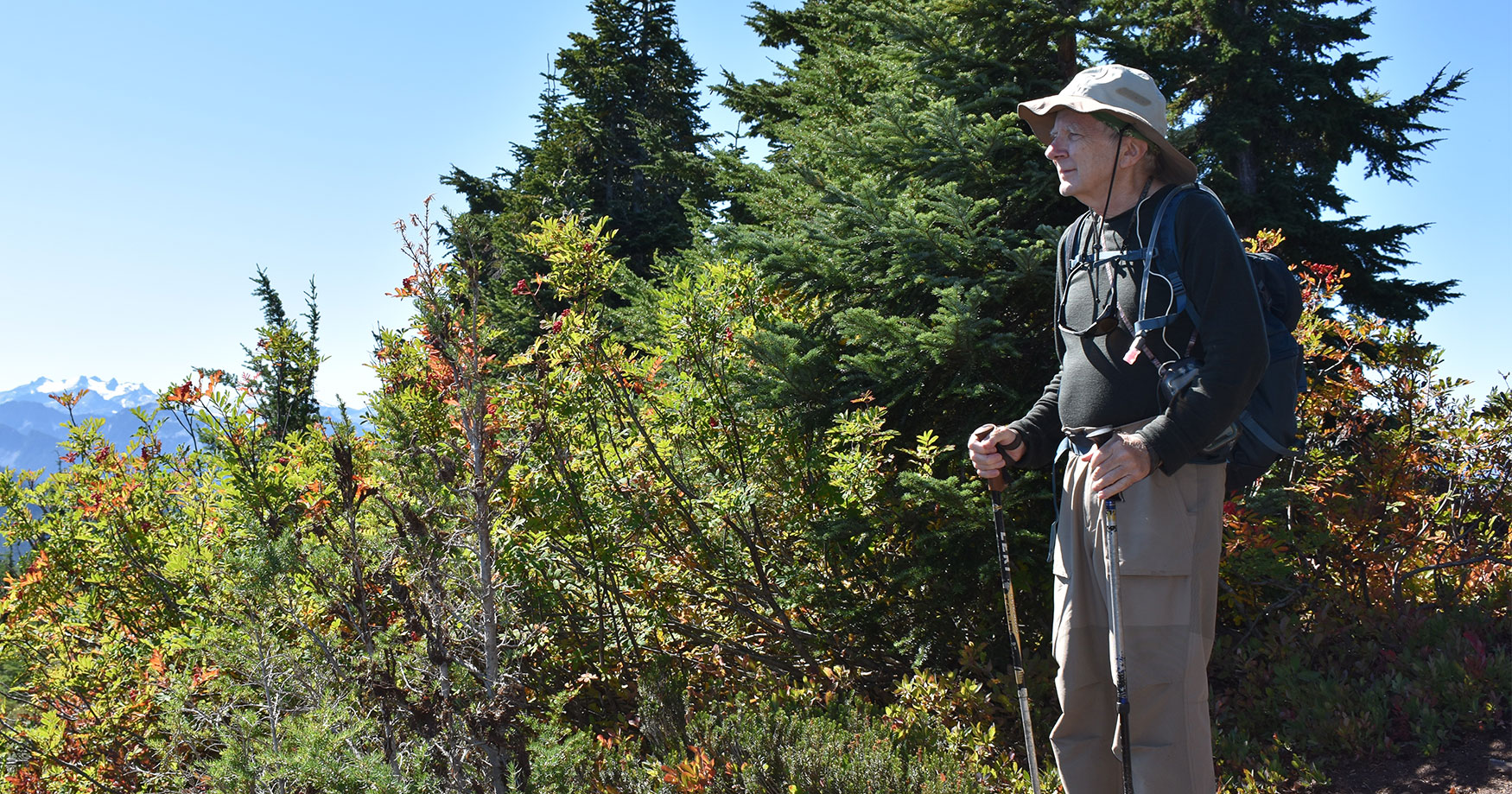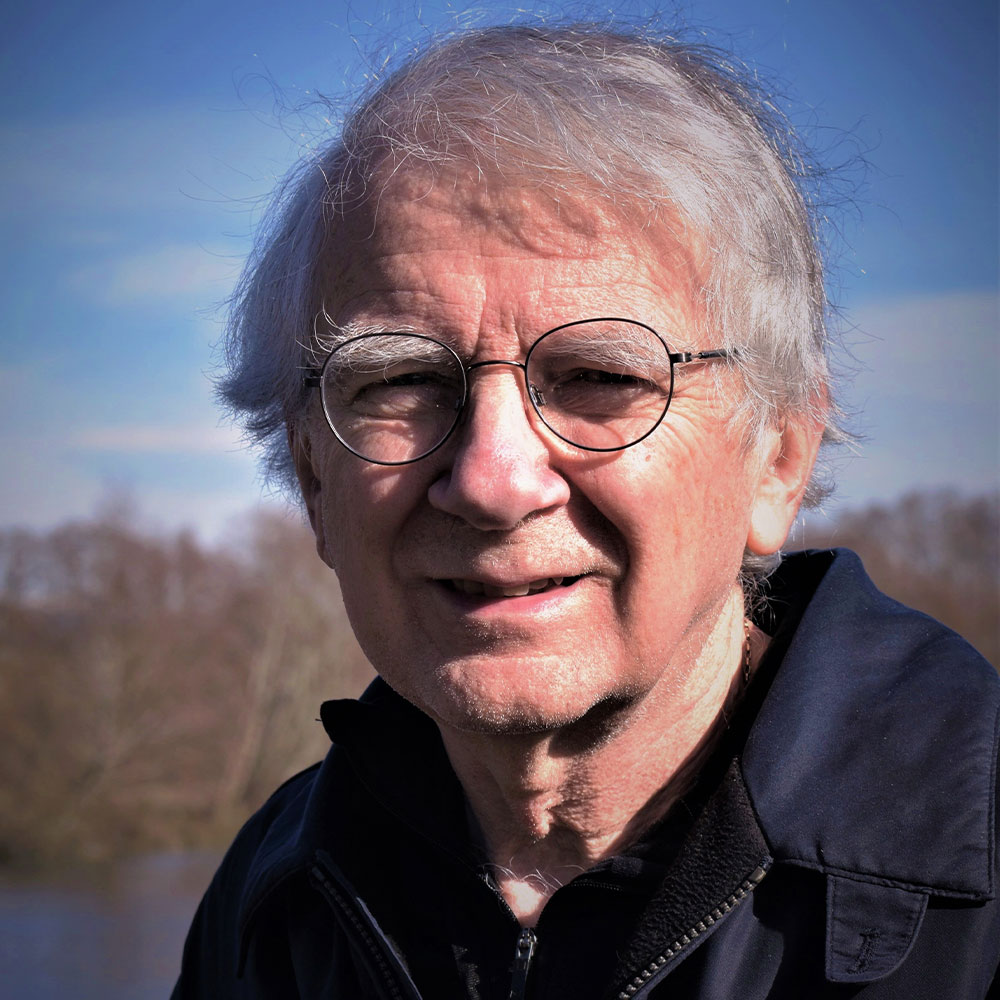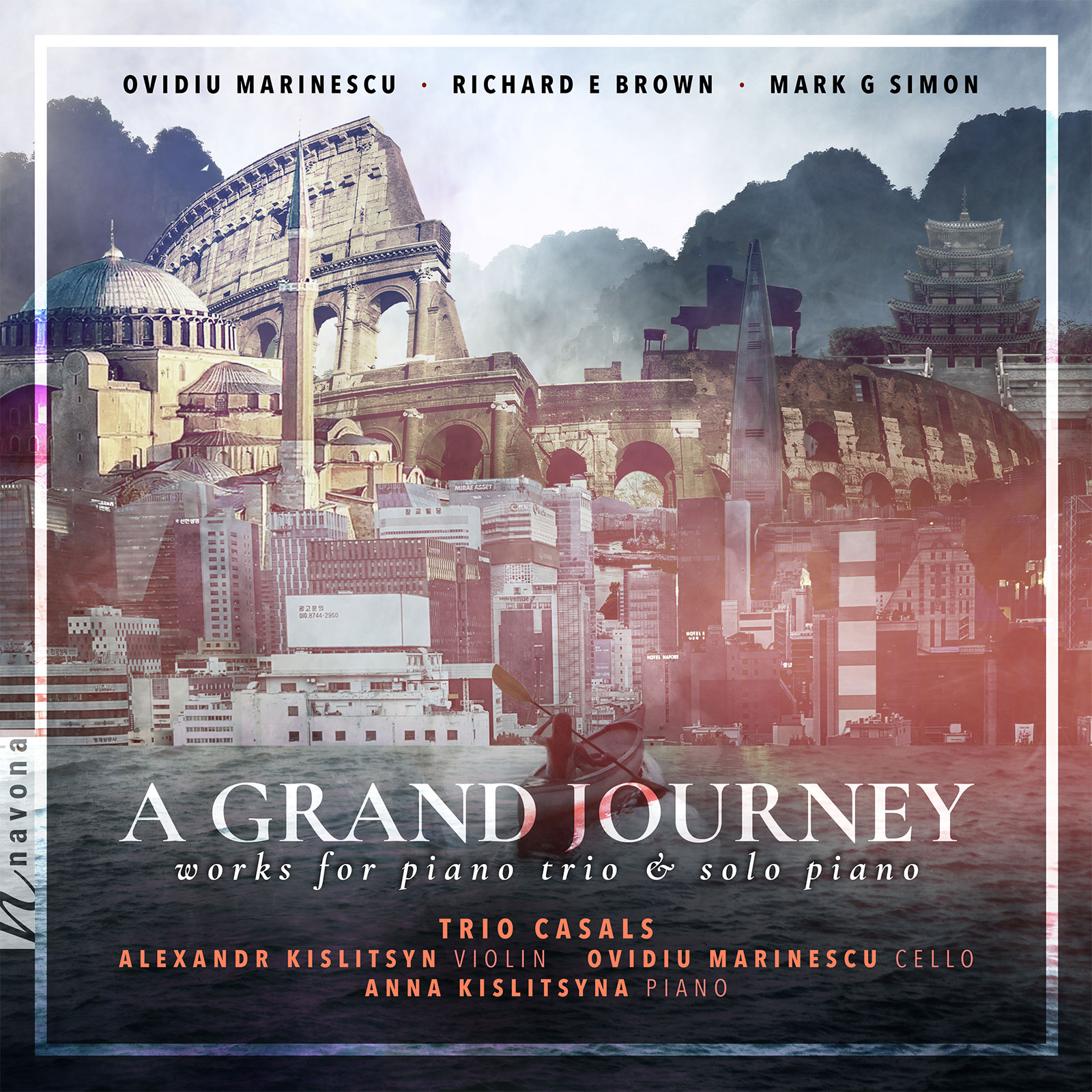
Inspired by traditional melodies and cultural flavors, A GRAND JOURNEY gives us contemporary chamber works by Richard E Brown, Ovidiu Marinescu, and Mark G. Simon. Performed by internationally acclaimed Trio Casals, Brown’s Trio No. 1 Koreana derives its themes from Korean folk songs originating from the area around Seoul called Gyeonggi Do. In contrast, Brown’s Trio No. 2 Pastoral stems from motifs mined from the Pastoral Symphony of Ralph Vaughan Williams, to whose memory the work is dedicated.
Today, Richard is our featured artist in “The Inside Story,” a blog series exploring the inner workings and personalities of our composers and performers. Read on to learn how Brown taught himself how to play piano, and his inclination towards the Austrian Alps to spark creativity…
Who was your first favorite artist(s) growing up?
Assuming this means classical musical artist, I would have to say Eugene Ormandy and the Philadelphia Orchestra. As a young child I had been a fan of Elvis and other pop stars of the day, but that changed after my older brother went off to college and later the Navy, leaving some classical LPs at home which I soon started listening to. There was one by Ormandy that quickly became my favorite and I played it over and over. This led me to join a record club and start my own collection. I was also a fan of Bernstein and the New York Philharmonic, but when the Philadelphia Orchestra started playing summer seasons at the Saratoga Performing Arts Center just a couple hours from where I lived, I became a “Philly Phanatic.” Besides attending many concerts, I actually managed to get some lessons from one of the horn players in the orchestra, and through that I even met Maestro Ormandy himself on a couple of occasions!
When did you realize that you wanted to be an artist?
Originally, I thought I did want to be an artist: meaning a visual artist. But I eventually learned that I had little aptitude for art and that my true passion lay in classical music. I joined the band at my small-town school as soon as I was eligible (5th grade) and within a few years I was becoming interested in learning composition. I got such help as I could from my high school music teacher, who lent me a book on basic harmony and gave me as much feedback as he could on my initial efforts. Mostly I listened to and studied a great deal of music and tried to emulate it in my own voice. By the time I was a senior in high school, I had taught myself enough to have written five pieces for our band, one of which became my first-ever public performance as both composer and conductor. At the urging of our faculty advisor, I also wrote a short musical for our senior class play. It was given two performances, and I won’t flatter my younger self by saying that it was any good, but of course the highly supportive small-town audiences loved it.
What was your most unusual performance, or the most embarrassing thing that happened to you during a performance?
I will take up this question right where I left off on the previous one: the musical that I wrote for our senior class play. There were two performances. The first was given at the elementary-junior high in my hometown and the second at the high school, which was in another town. Between those two performances, one of the cast members somehow got injured and had to be replaced for the high school performance. Guess what…we didn’t have understudies to jump in, so her part had to be taken by someone who didn’t know the role at all. I was accompanying on piano: rather unusual in itself because I wasn’t — and still am not — at all competent on keyboard, so I had written very easy accompaniments for myself! But suddenly I had to do quite a bit of improvising to fill in when she lost her place or couldn’t remember the song that she had tried to learn in one day. I don’t know how I got through that without making a mess of it, but I somehow managed and the show didn’t crash.
If you could spend creative time anywhere in the world, where would it be and why?
When I was in graduate school at Florida State, I spent part of my summers in a rented cottage on nearby St. George Island. It was a wonderful working location: no distractions, cool sea breezes, and the distant sound of surf. I always thought of that as my favorite place to work, but this question got me thinking; there must be some place that I haven’t experienced and would like to. I still love the ocean, but now I am more of a mountain bum so I would choose an alpine setting. For me, no better such location could possibly exist than one of Gustav Mahler’s composing huts, specifically the one at Steinbach am Attersee in the Austrian Alps! Why? Because of its historical significance and spectacular location. I would get to see the same view that Mahler saw as he worked and I would be able to feel his presence as I worked. If I ran into a dead end, I could say “Maestro, could you help me out here?” Of course, now it is a tourist attraction on the grounds of a big hotel. Anything but peaceful, it wouldn’t feel much like it did in Mahler’s day to work there. But since this is fantasy, I guess we can ignore that reality.
If you could instantly have expertise performing one instrument, what instrument would that be?
This may sound strange coming from a composer, but I would choose the piano. Why does that sound strange? Because most composers are already proficient on piano, but I have to admit that for a composer, my keyboard skills are woefully lame. I grew up in a tiny village in the Adirondacks where there was no piano teacher, nor was there a piano in my childhood home. To my parents’ credit, they recognized my need for one when I was in my teens and bought me a little spinet, which saved my sanity. A couple of ladies in the village who could play were engaged to give me some lessons, but they had no idea how to teach, so I basically had to teach myself. I never got real piano lessons until I was in college, and by then it was the clichéd case of “too little, too late.” I managed to learn enough to pass “piano proficiency” in order to major in music, and again, six years later, to get admitted to grad school. But that was the extent of my piano education.
What does this album mean to you personally?
As a life-long creature of the band world, I’ve always written mainly for student musicians. I have thus had little opportunity to write for professional orchestras or classical chamber groups with any hope of performance, and I’ve always dreamed of having some orchestral work in the legitimate classical repertory. With this album, PARMA has opened that door and led me into the world of professional musicians and recordings, at last realizing my life’s dream. I have several more albums coming out over the next year or so, but this one is the first, and as such will always hold a very special meaning for me.
Explore Richard’s Latest Release
A GRAND JOURNEY
A GRAND JOURNEY is available now from Navona Records. Click here to visit the catalog page and explore this album.

Richard E Brown, a native of New York State and has been active as a composer-arranger and music educator for many years. His training includes M.M. and D.M. degrees in composition from Florida State University, as well as a B.A. in music education from Central College, which named him a Distinguished Alumnus in 1983. His principal composition studies were with Carlisle Floyd, John Boda, and Charles Carter. He is a member of ASCAP and is represented in the catalogs of several trade publishers, as well as his personal imprint Dacker Music.

